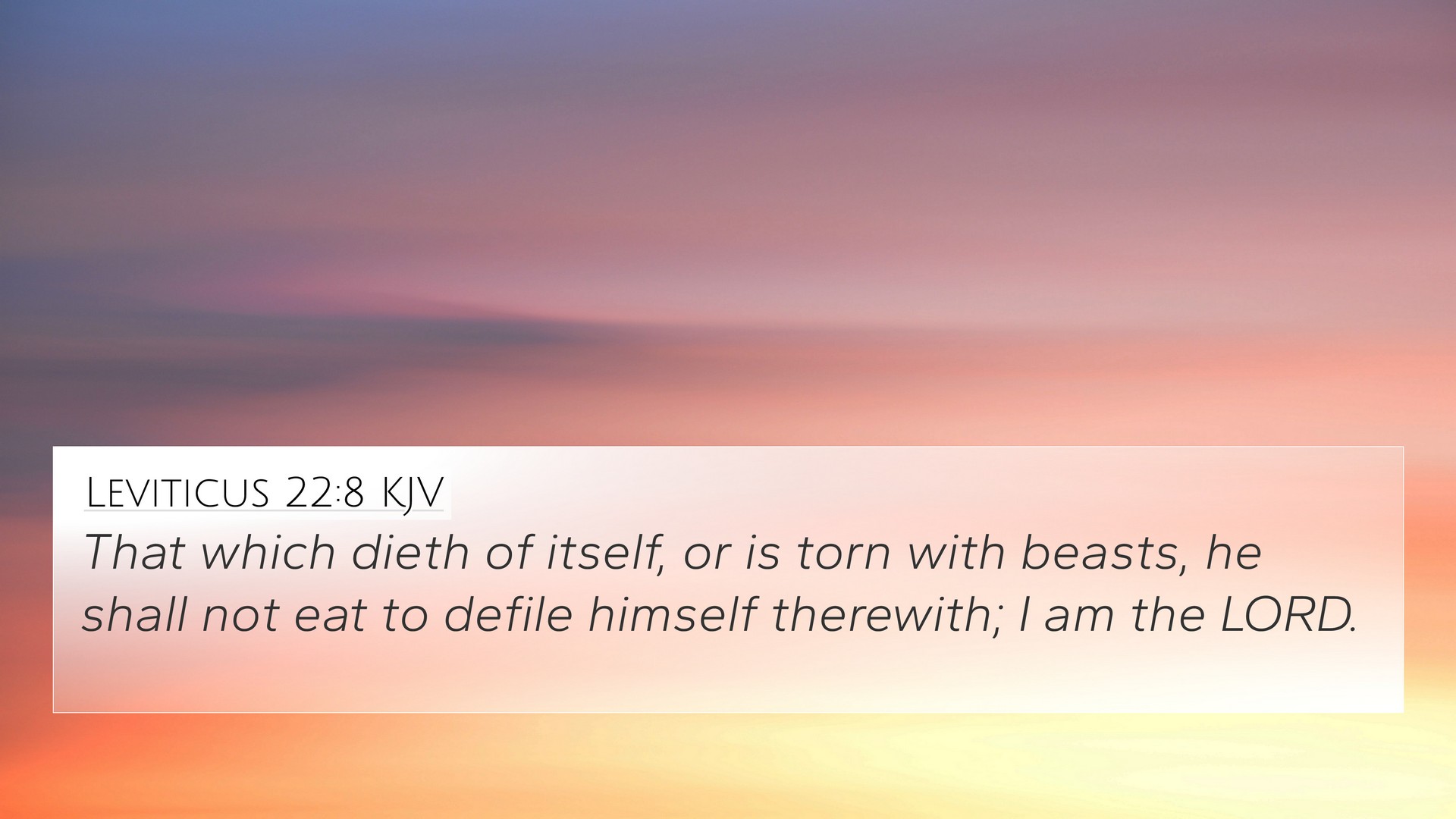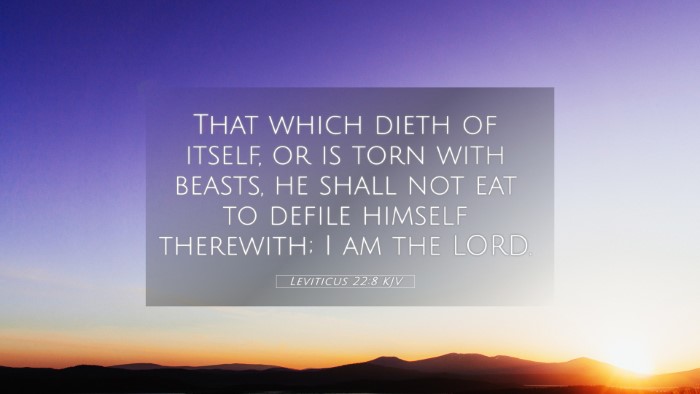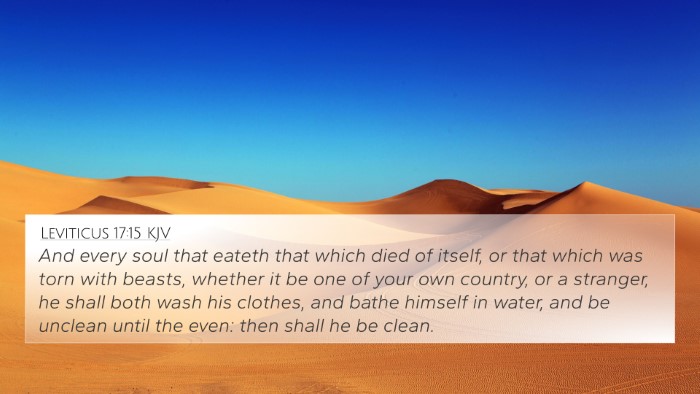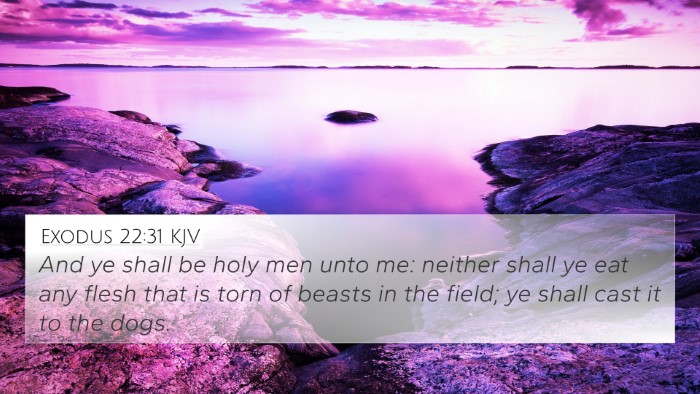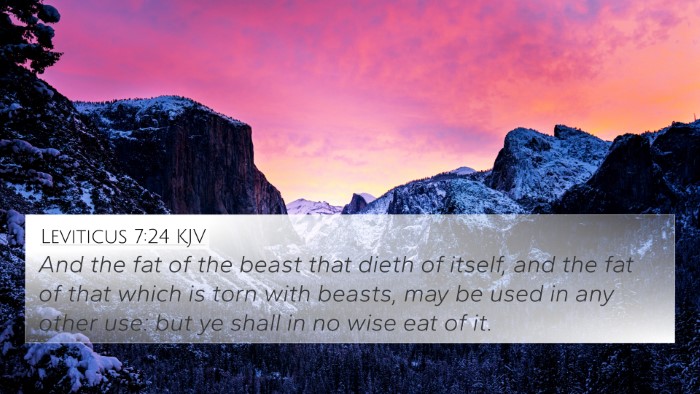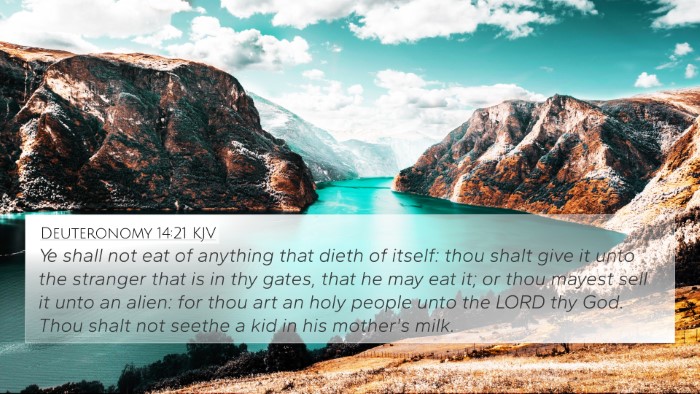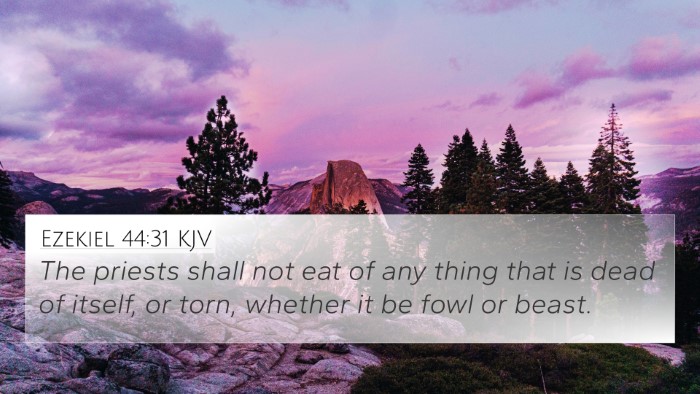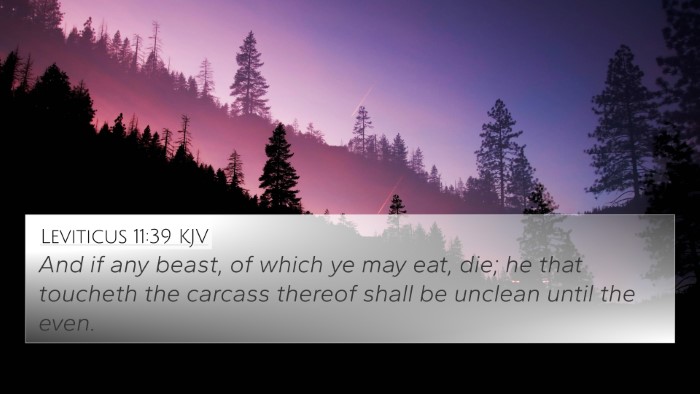Understanding Leviticus 22:8
Leviticus 22:8 states: "He shall not eat of the carcass that dies of itself, or that which is torn by beasts, to defile himself thereby: I am the LORD." This verse emphasizes the strict dietary laws given to the Israelites regarding purity and holiness in their worship practices.
Key Themes
- Holiness: The call to maintain a state of holiness is paramount throughout Leviticus, and this verse reaffirms that relationship. Priests, who were to be models of purity, were specifically instructed not to partake in food that could defile them.
- Dietary Restrictions: The prohibition against consuming an animal that died naturally or was torn by beasts underscores the importance of the sacrificial system wherein animals were to be pure and without blemish.
- Covenant Relationship: The phrase "I am the LORD" serves as a reminder of God's unique relationship with Israel and His expectations for their behavior.
Commentary Insights
According to Matthew Henry, this verse highlights the distinction between the sacred and the profane. The priests are set apart from other people, and thus must adhere to stricter regulations concerning their food. It reflects God's desire for His chosen ones to maintain purity in every aspect of life.
Albert Barnes emphasizes the health and spiritual implications of these dietary restrictions. The consumption of a dead carcass was seen not just as physically unhealthy but, more importantly, spiritually corruptive. Such practices would compromise one's relationship with God and the community.
Adam Clarke notes that the Lord’s commands regarding consumption mirror His nature. Just as God is holy, those who serve Him must also be holy and reflect that holiness in their choices, including what they eat.
Comparative Analysis
This verse can be linked thematically to other passages that discuss purity and holiness. Here are some cross-references:
- Exodus 22:31: "And you shall be holy men to Me." This verse underscores the principle of holiness similar to Leviticus 22:8.
- Leviticus 11:3-4: Outlines clean and unclean animals to reinforce the idea of dietary laws.
- Deuteronomy 14:21: Prohibitions against consuming unclean animals connect well with Leviticus 22:8.
- 1 Peter 1:16: "Be holy, for I am holy." This verse reiterates the call for holiness among God's people, paralleling the theme of Leviticus 22:8.
- Matthew 15:17-20: Jesus discusses what defiles a person, indicating that it’s the heart’s condition, while echoing these dietary principles.
- Hebrews 13:11-12: Speaks about sacrifices and the holiness associated with proper observance of the law, which can relate back to the sacrifices mentioned in Leviticus.
- Romans 12:1: Paul encourages believers to present their bodies as living sacrifices, which ties back to the concept of purity in worship.
Tools for Cross-Referencing
In studying the Bible, utilizing tools for cross-referencing can be immensely helpful:
- Bible Concordance: A powerful tool for finding keywords and phrases to identify connections.
- Bible Cross-Reference Guide: Offers systematic guides to related verses across scripture.
- Cross-Referencing Bible Study Methods: Various methodologies exist to explore interconnections between scriptures.
- Bible Reference Resources: Various reference works available to aid in understanding context and connections.
- Bible Chain References: These links between passages can enhance understanding thematic links.
Conclusion
Leviticus 22:8 serves as a significant reminder of God's commands regarding purity and holiness. By understanding the historical context and scriptural implications, individuals can draw deeper insights from this verse. Furthermore, through Bible verse cross-references, readers can uncover profound connections between various Bible verses that relate to each other and enhance their understanding of thematic inter-Biblical dialogue.
